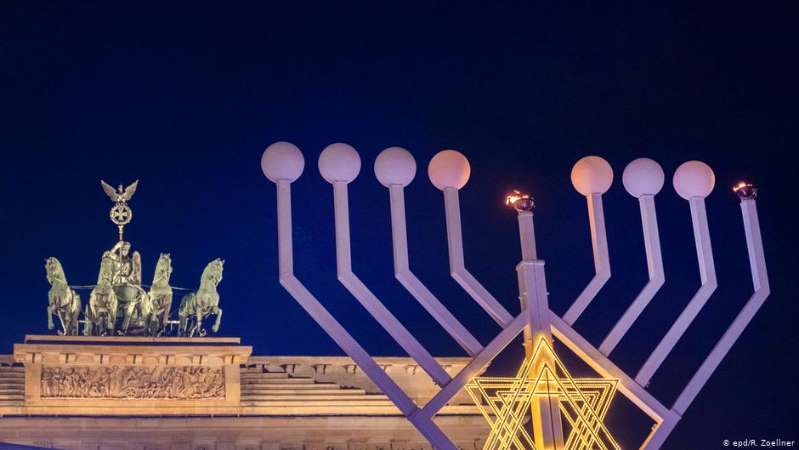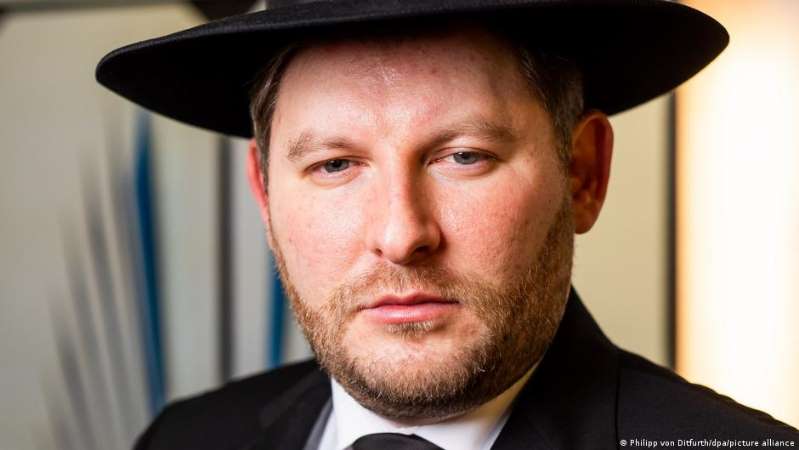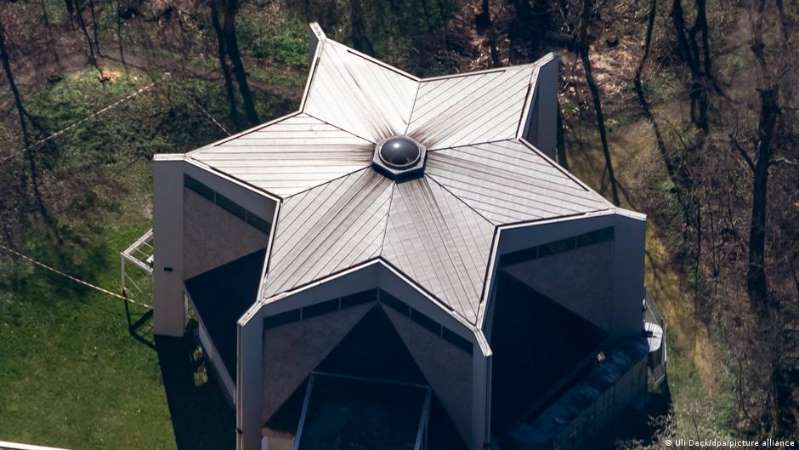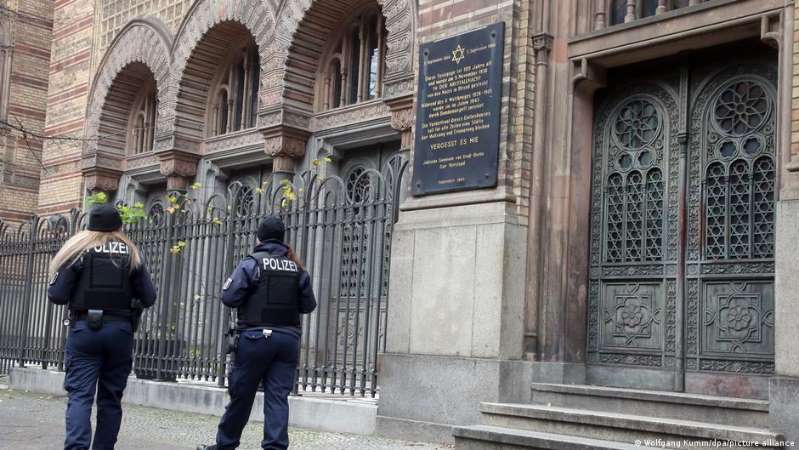Police rabbi – such a position first appeared in Germany at the beginning of this year. Why does the German police need the help of the rabbis?

Menorah at the Brandenburg Gate in Berlin on Hanukkah
Germany is the third country in the world, after Israel and the United States, to have rabbis in the police force. Since the beginning of 2021, the first two police rabbis have started their work in the federal state of Baden-Württemberg. The Jewish community of Württemberg will be represented in the police by the Ulm Rabbi Shneur Trebnik and the Rabbi of the city of Lörrach Moshe Flomenmann.
The 39-year-old land rabbi Moshe Flomenman, who is in charge of 10 communities in the Baden region, was born and raised in Ukraine. He came to Germaniyun with his family at the age of twelve. His parents sent him to study at the Copenhagen Jewish Academy. Then he entered the rabbinical university in Manchester. For almost seven years he was the land rabbi of the federal state of Saxony-Anhalt. He has two children: an eight-year-old daughter and a five-year-old son. Moshe Flomenman speaks six languages fluently: German, Russian, Ukrainian, Hebrew, English and Yiddish. The main language of communication with members of Jewish communities, as he says, is Russian. The rabbi is in Russian and answers DW's questions.
DW: What are the Jewish communities in your region and how many Jewish believers are there?

Rabbi Moshe Flomenman
Rabbi Moshe Flåmenmann: The congregation in the city of Lörrach has 500 parishioners, and the number of parishioners in the Baden region is about five and a half thousand people. Most of them come from the republics of the former USSR, over sixty years old, but among the believers there are many people of middle and young age. Basically, these are children of immigrants from the former Soviet Union.
– Why did it become necessary for the position of a police rabbi to appear in the federal state of Baden-Württemberg?
– Let's start with the fact that the police are guarding our and other synagogues in Germany. This, unfortunately, is a forced step. Anti-Semitism in Germany has intensified over the past ten years, and attacks on synagogues have increased. One of the tasks of the police rabbi is to explain to the police officers who deal with the Jewish community who they are guarding, what the members of the Jewish community are, the particulars of the Jewish religion, and so on.
After the terrorist attack in Galle on October 9, 2019, on the day of the Jewish holiday of Yom Kippur, a lot of criticism was made to the police due to the fact that its officers did not arrive at the scene so quickly and could not immediately prevent an armed attack from the criminal who was filming what was happening. on camera and broadcast live on the Internet. In our opinion, the police should have more information about what holidays Jews celebrate, how and how they live, what fears they experience in connection with anti-Semitic sentiments in society.

Synagogue in Karlsruhe
It is no coincidence that the Minister of the Interior of the federal state of Baden-Württemberg, Thomas Strobel, during the signing of an agreement between the ministry and the Jewish communities of Baden and Württemberg, said literally the following: “The police guarding our free and democratic order must set an example in the fight against anti-Semitism. Our police stand for openness and tolerance and adhere to the constitution. ”
– You yourself worked for a long time in Halle. How did you react to the news of the armed attack on the synagogue?
– I was shocked that two people died, but if the criminal had managed to get into the building of the synagogue itself, then there could have been many more victims. I must confess to you that during my work in Halle we did not have a good and businesslike contact with the police. The members of the community did not feel that they were safe. It was after the attack on a synagogue in Halle that the anti-Semitism commissioner Michael Blume of the Baden-Württemberg state government proposed the introduction of police rabbis, similar to those in Israel and the United States.
The agreement where this was negotiated was signed in 2020. We hope that other federal states in Germany will soon follow our example.
– You said that one of the tasks of the police rabbi is explanatory work. How exactly will it be expressed?
– Our main task is to convey to the police officers an understanding of the Jewish religion and how Jews live in Germany today, in the year when the 1700th anniversary of Jewish life is celebrated here. We will conduct courses at police academies, give lectures, and introduce the life and traditions of Jews in Germany. Our task is to convey to the police officers an understanding of what anti-Semitism is and how it is dangerous not only for Jews, but in general for the entire German society. After all, the people who died in Halle were not Jews.

Police patrol at the entrance to the Berlin synagogue
Courses for police officers have already been planned, for now, however, online, but we hope that police officers will soon be able to come to synagogues and see them with their own eyes. It is important for us that people who, through their duty, protect our rights and security, know that Judaism is not something distant, alien, that one should not be afraid of it. Often people who do not understand something develop fear and alienation, and this fear can even develop into hatred. We want to empower people to get to know and understand us better.
– Do you believe that the day will come when synagogues in Germany will not need to be guarded?
– No, I do not believe that such a time will come soon. To completely eradicate anti-Semitism, in my opinion, is unrealistic and impossible. But our goal is to bring people closer to Jewish life, so that they can see that Jews do not bite, that they are the same people as everyone else, and that they simply profess a different religion. We hope that synagogues will continue to be protected in the future, but of course we would like the time to come when this will no longer be necessary.
– Will your life change in connection with your new position as a police rabbi?
– Will definitely change. This is serious additional work for me and my colleague Shneur Trebnik. We consider this project very important and are convinced that we can contribute to better understanding between the police and the Jewish communities of our federal land. By the way, we do not have any police uniform, we will come to the police in our rabbinical clothes with a kippah on our head.
See also:
Author: Victor Weitz

